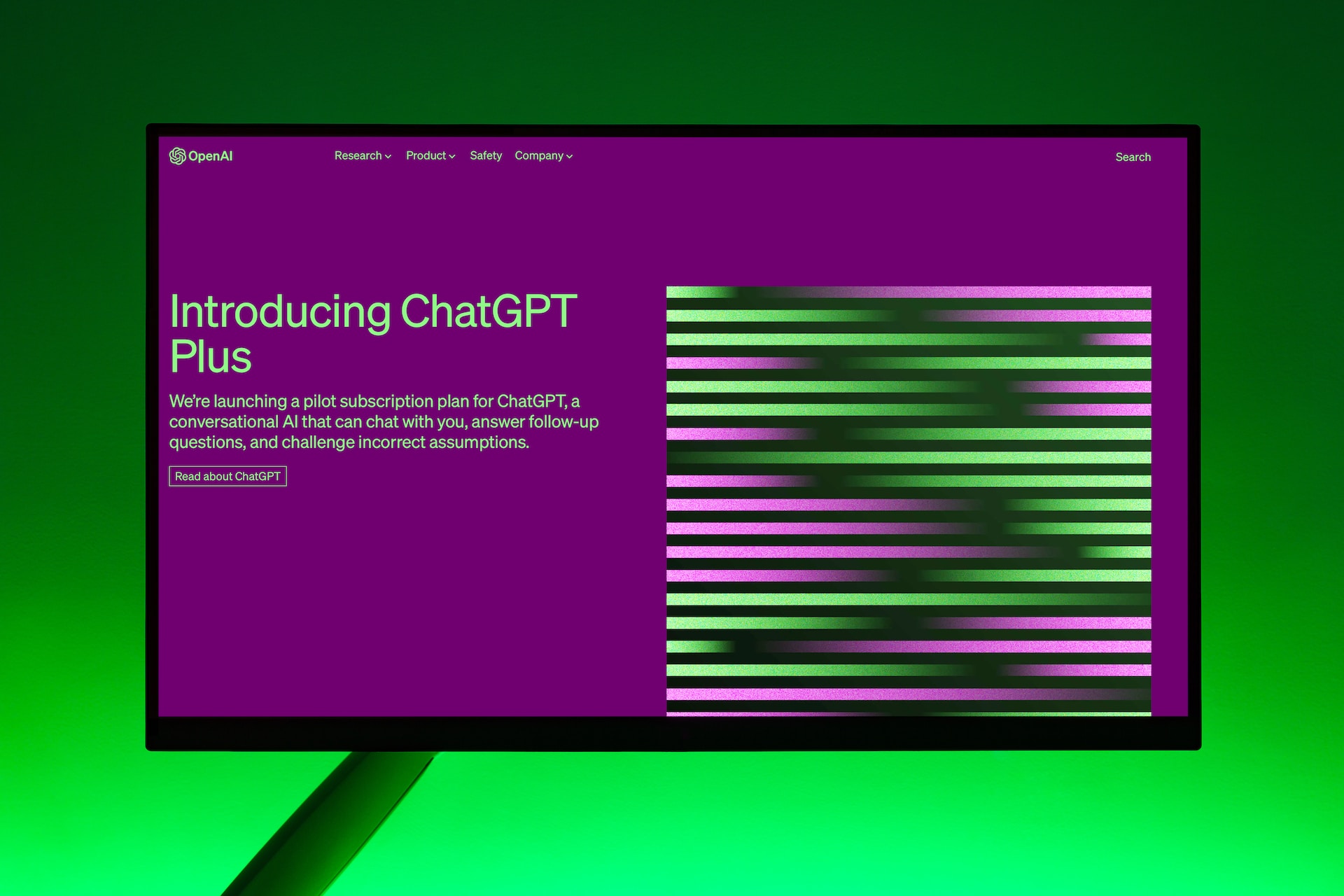
Can artificial intelligence really beat genuine intelligence?
In the dark arts of marketing and public relations, you’re only as good as your last campaign, or so the cliché goes.
And if you can’t provide a tangible measurement of your impact then you’re potentially heading for the toaster – and on the highest crumpet-burning setting at that.
Getting results is what keeps us alert and it’s kind of taken for granted that nothing else could possibly knock us off our proverbial perches.
You can imagine then, the wailing and gnashing of teeth that has greeted the releases of OpenAI’s ChatGPT and GPT4 – and the audacious idea that computers might render (human-generated pun 100% intended) marketing teams unemployed.
The sheer effrontery of it. This wasn’t meant to happen to our profession.
Yet spreading faster than the Mydoom email virus, articles about the uncertain futures of a whole host of marketing and other roles continue to abound.
What if AI isn’t the threat we’re led to believe?
The truth is, we all need to calm down. Please remember that we are, after all, living in the age of clickbait engagement.
Amid the hullabaloo about ChatGPT and GPT4, some sensible analysis has emerged, and this is our non-AI-assisted take on the situation.
So, firstly what are they and how do they work? They’re both generative AI language models – basically machines, trained with data, capable of generating text. ChatGPT takes commands from text, whereas GPT4 can use visual prompts to produce a text response and is said to be capable of processing several times more words than ChatGPT.
Its rightly-proud inventors at OpenAI have backed up claims about its intelligence by citing an ability to pass exams in the top 10% of candidates. It is very impressive.
However, it does have limitations. For example, OpenAI cautions that the model can and will “hallucinate” facts – a flaw that appears to be backed up by Financial Times readers commenting on this opinion piece.
They claim that the tool had attributed made-up references to people and cited academic papers that did not exist.
This reinforces concerns about intellectual property. Imagine being called out in the press or on social media, or facing legal action for publishing content based on wrongly attributed research?
Additionally, the cut-off point for data with which GPT4 has been trained is currently September 2021. Which means it lacks information about events since then.
To many who write for a living, this is a critical shortcoming, as content underpinned by stats more than a year old is often deemed to be on shaky ground.
However, that’s not to say we shouldn’t be mildly concerned or excited about the arrival of AI-generated text.
There are lots of media reports about the huge level of VC support for this technology.
Indeed, Microsoft has ploughed $10 billion into OpenAI and has integrated ChatGPT into its Bing search engine, leaving some wondering how long will it be before we can ask a Word document to write itself.
How marketing teams can harness the power of AI
The question is, will it put marketers out of business? At FS Partnership, we think the answer is yes and no. Yes to those who refuse to explore this evolving technology and harness its power to aid their work. And no to everyone else.
Someone wisely suggested on Twitter that AI will be to marketers what GPS was to taxi drivers.
Business owners and senior executives might spot a cost saving opportunity in generative AI. This is the wrong approach, in our opinion. Instead it should be seen as an opportunity to improve your marketing team’s performance and longevity.
This is because it’s a tool we can deploy to augment our work in certain areas to improve efficiency and support ideas development. To the copywriters among us, it could help ensure essential details in blogs and white papers aren’t overlooked, and massively speed up desk research.
In this era of homeworking creatives, generative AI could also prove to be a useful brainstorming technology.
Recognising the generative AI’s current limits, however, Jonathan Nelson, of the American Marketing Association, told the Washington Post that AI could provide a “framework” for an article but a person would need to edit it and make it sound “human” again.
Another thing it will struggle to achieve, at least in the near to medium term, is match the human brain’s ability to help a business both find and consistently apply the right tone of voice – and pivot the tone according to the audience.
It will struggle with personality too. It’s hard to believe that an AI tool would be great fun at a dinner party or down the pub. For the same reason, it might not do much for a brand’s authenticity.
On that note, part of OpenAI’s sharing and publication policy requires GPT4 users to declare that any content they publish was created with the assistance of AI.
In certain contexts such a declaration is fine but in others it would feel completely inappropriate, particularly where sincerity means everything. Imagine reading that a healthcare provider’s values had been written with the help of AI. It doesn’t quite sit right, does it?
In short, our take is that artificial intelligence will support rather than supplant genuine intelligence, helping marketing teams to deliver a better service and more tangible results.
As a tech-positive company, we’re exploring ways to deploy AI for the benefit of our clients – and our humans will be blogging about this in the months to come. Stay tuned.
Sources:
